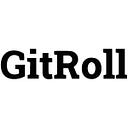Introduction
In today’s tech job market, aspiring developers navigate a vast talent pool filled with fierce competition. Recruiters often face information overload, making it challenging to identify the right candidates. However, GitHub has emerged as a valuable tool for gaining insights into a developer’s coding skills. By examining GitHub profiles, recruiters can see project contributions and assess coding styles, which can provide a clearer picture of a candidate’s abilities. This platform not only serves as a showcase for developers but can also help them stand out in a crowded field, offering a way to demonstrate their skills beyond traditional resumes.
The Challenge of Traditional Vetting
Despite the advantages of GitHub, traditional vetting methods still dominate the recruitment landscape. Many recruiters rely heavily on resumes and interviews, which can sometimes mislead them about a candidate’s true skills. For instance, a developer might have extensive contributions on GitHub that showcase real coding abilities, yet their resume might not reflect this due to a lack of experience or poor formatting. This discrepancy can lead to talented individuals being overlooked simply because their resumes don’t tell the whole story. While interviews provide an opportunity to discuss skills in person, they often fail to capture a developer’s practical expertise, leaving some qualified candidates at a disadvantage.
Why GitHub Matters
GitHub matters because it acts as a living portfolio for developers, showcasing their ongoing work and progress. This platform allows recruiters to gain insight into an individual’s coding style and problem-solving abilities through the projects they contribute to. For example, a developer’s GitHub might highlight a successful open-source project that not only reflects their technical skills but also their collaboration and commitment to the coding community. This real-world application of knowledge can be a significant differentiator for candidates, especially in a competitive job market where every detail counts. By leveraging GitHub, developers can provide tangible evidence of their skills, making it easier for recruiters to assess their potential.
The Evidence-Backed Approach
Analyzing code for proficiency and skills is a crucial aspect of the recruitment process. Code reviews can reveal a candidate’s testing and documentation abilities, offering a balanced perspective on their GitHub profiles. For example, a candidate’s well-documented project can illustrate their thoroughness and attention to detail, which are essential traits in development. While some may argue that code quality alone doesn’t define a developer, it certainly provides valuable insights into their thought process and problem-solving skills. This evidence-backed approach allows recruiters to look beyond the surface, enabling them to make more informed decisions when evaluating potential hires.
Striking a Balance
Striking a balance between traditional hiring methods and GitHub analysis can enhance the recruitment process. Combining resumes, which offer context about a candidate’s education and work history, with GitHub profiles that showcase the depth of their coding skills can create a more holistic view. Recruiters can identify hidden gems, such as a junior developer who may not have formal job experience but has made impactful contributions to open-source projects. This dual approach allows for a more comprehensive understanding of a candidate’s potential, bridging the gap between formal qualifications and practical expertise. By integrating both perspectives, recruiters can uncover talent that might otherwise remain unnoticed.
Conclusion
As recruitment methods continue to evolve, platforms like GitRoll provide recruiters with real-world insights into developers’ skills and capabilities. By analyzing contributions, recruiters can make more informed decisions, leading to better hires. This shift towards a more nuanced understanding of candidates not only benefits employers in finding the right fit but also empowers developers to showcase their true potential, fostering a more inclusive and effective hiring landscape. In a competitive job market, leveraging these tools can make all the difference in connecting talent with opportunity.
